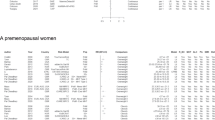Abstract
Lifestyle changes alter behavioral and psychological makeup in a human being. Many people in our society adopt harmful lifestyles due to psychosocial pressure without thinking about their physical health which turns to be a risk factor, expanding the possibility of getting affected by deadly diseases. One of the major diseases, a plausible result of unhealthy lifestyle choices like poor diet, less physical activity, stress, obesity, consumption of a high amount of alcohol, frequent smoking, is breast cancer. The harmful effects of the lifestyle choices listed above impact the therapies related to breast cancer. Among the risk factors, we considered some of the ones which are scientifically established and some which are yet to be properly established. Modification of lifestyle choices offers hope for breast cancer survivors to improve their overall quality of life. In this paper, we focused to evaluate, by using computational models, the chances of getting breast cancer, based on the rise in estrogen level and BRCA1 gene mutation, as a result of four risky health behaviors- stress, smoking, alcohol, and obesity.
Access this chapter
Tax calculation will be finalised at checkout
Purchases are for personal use only
Similar content being viewed by others
References
American Joint Committee on Cancer: Breast. AJCC Cancer Staging Manual, pp. 223–240. Springer, New York (2002)
Saceda, M., et al.: Regulation of the estrogen receptor in MCF-7 cells by estradiol. Molecul. Endocrinol. 2(12), 1157–1162 (1988)
Hagino, Y., et al.: Estrogen inhibits the growth of MCF‐7 cell variants resistant to transforming growth factor-beta. Japan. J. Cancer Res. 79(1), 74–81 (1988)
Hsieh, C.-Y., et al.: Estrogenic effects of genistein on the growth of estrogen receptor-positive human breast cancer (MCF-7) cells in vitro and in vivo. Cancer Res. 58(17), 3833–3838 (1998)
Bowen, D.J., et al.: The role of stress in breast cancer incidence: risk factors, interventions, and directions for the future. Int. J. Environ. Res. Public Health 18(4), 1871 (2021)
Michael, Y.L., et al.: Influence of stressors on breast cancer incidence in the Women’s Health Initiative. Health Psychol. 28(2), 137 (2009)
Kispert, S., McHowat, J.: Recent insights into cigarette smoking as a lifestyle risk factor for breast cancer. Breast Cancer: Targets Therapy 9, 127 (2017)
Samaras, K., et al.: Tobacco smoking and estrogen replacement are associated with lower total and central fat in monozygotic twins. Int. J. Obes. 22(2), 149–156 (1998)
Brown, K.F., et al.: The fraction of cancer attributable to modifiable risk factors in England, Wales, Scotland, Northern Ireland, and the United Kingdom in 2015. Br. J. Cancer 118(8), 1130–1141 (2018)
Takada, K., et al.: The effect of smoking on biological change of recurrent breast cancer. J. Transl. Med. 18(1), 1–12 (2020)
Liu, Y., Nguyen, N., Colditz, G.A.: Links between alcohol consumption and breast cancer: a look at the evidence. Womens Health 11(1), 65–77 (2015)
Seitz, H.K., Stickel, F.: Molecular mechanisms of alcohol-mediated carcinogenesis. Nat. Rev. Cancer 7(8), 599–612 (2007)
Carmichael, A.R., Bates, T.: Obesity and breast cancer: a review of the literature. The Breast 13(2), 85–92 (2004)
Rubinstein, M.M., Brown, K.A., Iyengar, N.M.: Targeting obesity-related dysfunction in hormonally driven cancers. Br. J. Cancer 1–15 (2021)
Al-Sader, H., et al.: Alcohol and breast cancer: the mechanisms explained. J. Clin. Med. Res. 1(3), 125 (2009)
Russo, J., Russo, I.H.: The role of estrogen in the initiation of breast cancer. J. Steroid Biochem. Mol. Biol. 102(1–5), 89–96 (2006)
Jones, M.E., et al.: Smoking and risk of breast cancer in the generations study cohort. Breast Cancer Res. 19(1), 1–14 (2017)
Bottorff, J.L., et al.: Young women’s responses to smoking and breast cancer risk information. Health Educ. Res. 25(4), 668–677 (2010)
Picon-Ruiz, M., et al.: Obesity and adverse breast cancer risk and outcome: mechanistic insights and strategies for intervention. CA: Cancer J. Clin. 67(5), 378–397 (2017)
Reeves, G.K., et al.: Cancer incidence and mortality in relation to body mass index in the Million Women Study: cohort study. BMJ 335(7630), 1134 (2007)
Behravan, H., et al.: Predicting breast cancer risk using interacting genetic and demographic factors and machine learning. Sci. Rep. 10(1), 1–16 (2020)
Zhao, M., et al.: p53 pathway determines the cellular response to alcohol-induced DNA damage in MCF-7 breast cancer cells. PLoS One 12(4), e0175121 (2017)
Reynolds, P.: Smoking and breast cancer. J. Mammary Gland Biol. Neoplasia 18(1), 15–23 (2013)
Cui, Y., Miller, A.B., Rohan, T.E.: Cigarette smoking and breast cancer risk: update of a prospective cohort study. Breast Cancer Res. Treat. 100(3), 293–299 (2006)
Clemons, M., Goss, P.: Estrogen and the risk of breast cancer. N. Engl. J. Med. 344(4), 276–285 (2001)
Kelsey, J.L., Bernstein, L.: Epidemiology and prevention of breast cancer. Annu. Rev. Public Health 17(1), 47–67 (1996)
Author information
Authors and Affiliations
Corresponding author
Editor information
Editors and Affiliations
Rights and permissions
Copyright information
© 2022 The Author(s), under exclusive license to Springer Nature Singapore Pte Ltd.
About this paper
Cite this paper
Das, O., Pradhan, I., Chatterjee, R., Dash, S.R. (2022). A Computational Approach to Assess Breast Cancer Risk in Relation with Lifestyle Factors. In: Dehuri, S., Prasad Mishra, B.S., Mallick, P.K., Cho, SB. (eds) Biologically Inspired Techniques in Many Criteria Decision Making. Smart Innovation, Systems and Technologies, vol 271. Springer, Singapore. https://doi.org/10.1007/978-981-16-8739-6_34
Download citation
DOI: https://doi.org/10.1007/978-981-16-8739-6_34
Published:
Publisher Name: Springer, Singapore
Print ISBN: 978-981-16-8738-9
Online ISBN: 978-981-16-8739-6
eBook Packages: Intelligent Technologies and RoboticsIntelligent Technologies and Robotics (R0)




